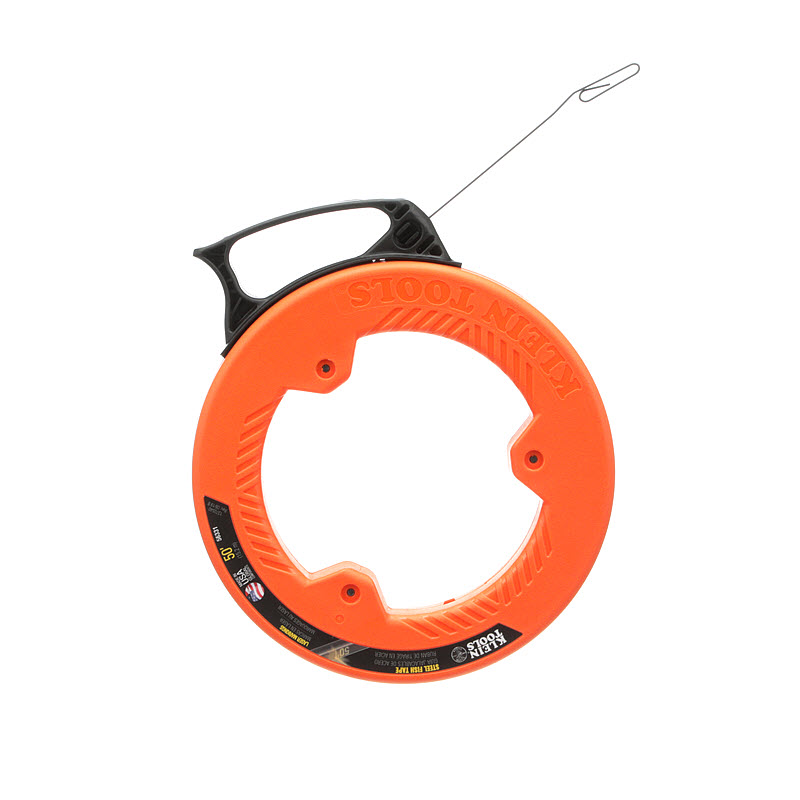Steel Fish Tape, 1/8-Inch x 50-Foot
56331
- Durable 1/8-Inch wide steel fish tapes are firm yet flexible for large wire pulls
- Optimized design of the tape housing decreases payout effort; slip-resistant geometry improves winding power
- Multi-position handle gives you a firm, steady grip as you pull tape from the case
- Descending laser etched markings in 1-Foot (0.3 m) increments
- Made in the US with Global Components
- Easy-to-read distance marks allow you to more accurately measure conduit runs and the amount of tape left to pay out
- Polypropylene case and handle offer high impact resistance
- U.S. Patents: 8164025; 8168921; 8212178; 9895773; 10099316
The Klein Tools' 50-Foot Steel Fish Tape is perfect for wire runs associated with light commercial, residential and voice-data-video installations. The optimized housing and handle design decreases payout effort and reduces binding. The large handle allows for a firm, steady grip as you pull the tape from the housing. The tape features laser-etched descending markings placed at every foot. These markings allow you to accurately measure the depth of conduit runs and determine the amount of tape left to pay out.
Specifications
Type:
Steel Fish Tape
Application:
Wire Pulling
Special Features:
Optimized Housing Design
Overall Length:
1.20'' (3.0 cm)
Overall Height:
8.81'' (22.4 cm)
Overall Width:
7.55'' (19.2 cm)
Material:
Steel
Color:
Orange/Black
Tape Size:
50.0' x 1/8'' x 0.045'' (15.2 m x 0.3 cm x 0.1 cm)
Diameter:
7'' (17.8 cm)
Tape End:
Double Loop Steel
Weight:
1.5 lb (680.4g)
UPC:
092644563317
Warnings
- Wear approved eye protection when feeding, pulling or rewinding fish tape.
- Do NOT use any fish tape on or near live circuits. Use extreme caution when working near any electrical equipment.
- Use a safe work position to avoid loss of balance when using fish tape.
- Never remove screws while fish tape is coiled inside reel.
- Never form pulling loop into a single loop (into shape of a fish hook) or create a sharp edge that could cause fish tape to catch on other objects or cut into insulation of surrounding wires. Pulling loop should only be formed into a double loop.






































